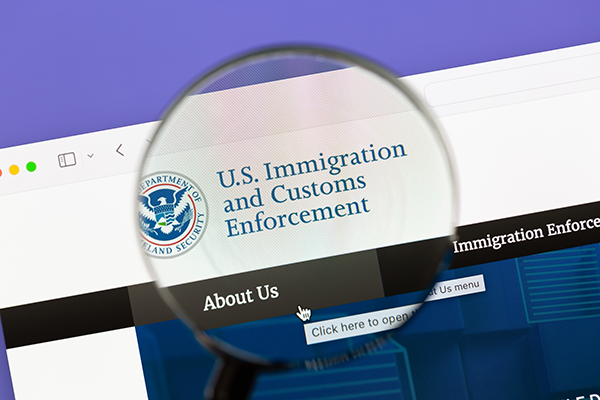Navigating the New Era of Immigration Enforcement
Client AlertWhat Employers Need to Know in 2025
Introduction
The landscape of U.S. business immigration is undergoing a seismic shift in 2025. For multinational corporations, the stakes have never been higher: federal agencies are intensifying scrutiny, increasing site visits, and rolling out new compliance requirements. These changes are not just bureaucratic hurdles—they directly impact your ability to hire and retain global talent, maintain legal compliance, and avoid costly disruptions.

This post will break down the latest enforcement trends, explain what they mean for your business, and provide actionable strategies to stay ahead.
1. The Rise of Immigration Audits and Site Visits
What’s Changing? Federal agencies, including U.S. Citizenship and Immigration Services (USCIS) and Immigration and Customs Enforcement (ICE), are conducting more frequent and detailed audits. Site visits—once relatively rare—are now a routine part of the compliance landscape. These inspections target everything from H-1B and L-1 visa holders to PERM labor certifications and I-9 records.
Why It Matters for Multinational Employers
- Increased Scrutiny: Audits are no longer limited to high-risk industries or random checks. Employers in all sectors, especially those with large foreign workforces, should expect unannounced visits.
- Broader Scope: Inspectors are reviewing not just visa documentation, but also payroll records, job descriptions, and even workplace conditions to ensure compliance with labor laws.
- Higher Stakes: Non-compliance can result in fines, visa revocations, or even criminal charges for willful violations.
Real-World Impact A recent report from the Bush Center highlights that immigration arrests have more than doubled in 38 states, with ICE conducting an average of 666 arrests per day nationwide—up from fewer than 300 daily in 2024. While these numbers include all immigration enforcement, they underscore the heightened environment for all employers.
Read the complete article to find out more about these policies, strategies, and consequences for employees at www.removal-defense.com. Get a deeper understanding of:
2. The Role of the New Office of Immigration Policy
3. Actionable Strategies for Multinational Corporations
4. The Cost of Non-Compliance: Penalties and Consequences for Employers
5. The Road Ahead: Staying Proactive in a Shifting Landscape
For guidance on these immigration issues, please contact BMD Member Robert Ratliff at raratliff@bmdllc.com. With over 25 years of trial experience in criminal defense and immigration law, Robert’s unique insights as a former Immigration Judge allow him to offer strategic guidance for clients facing complex immigration challenges.